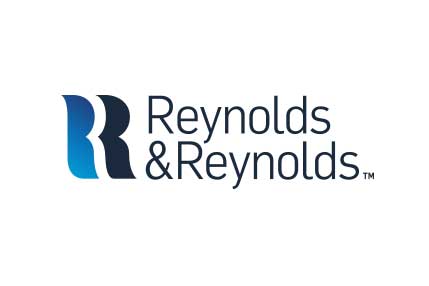Website Best Practices

Article Highlights:
- Modifying website content for current events.
- How to audit your Vehicle Detail pages.
Website traffic is increasing, so make sure you are getting accurate and relevant information to your customers quickly and easily. In this episode of our video podcast, Connected, Jay Harper, Director of Product Planning at Naked Lime Marketing provides tips on how to best utilize your dealership’s website and discusses the company’s efforts to support dealerships during the COVID-19 pandemic.
Greg Uland: Hello, I’m Greg Uland, marketing director at Reynolds and Reynolds, and this is Connected, the podcast with best practices and ideas to help navigate what is happening in the automotive retail industry and the world today. As the COVID-19 virus continues to change our world and how we live and work daily, this podcast discusses ways to continue operating in this unprecedented social environment. On today’s episode, we have with us Jay Harper, director of product planning at Naked Lime Marketing. Jay, thanks for joining.
Jay Harper: Thanks, Greg. Thanks for having me.
Uland: For sure. Jay, obviously today there are a lot of metrics that are down across the industry, but one that’s not down is website traffic. So I’m hoping to talk with you today a little bit about ways dealers can adjust their website to make the most of that traffic as it comes in. What are you seeing out of Naked Lime that dealers are doing that’s been successful?
Harper: That’s a good question. I appreciate you having me again. This is a topic I think that’s pretty relevant in today’s day and age, obviously. The first basic thing that dealers really should be understanding is what brought the consumers or their customers to their site in the first place. What are they searching for that landed them on their home page or service page or whatever it is? Whether that was from paid advertising or an organic search or maybe something they did proactively from an email targeting standpoint where the customers clicked on a link and come to their home page.
So with that being said, once you understand where they’re coming from and their intent, you can customize your website and have a strategy to respond appropriately. But I think, not to overstate it or understate it or simplify it, I think dealers really just need to tell their customer base whether they’re open or not. That’s the first thing they probably would have never thought of a month or two ago. But really, are you open?
And then you break it down, are you open for service? Sales? And if folks are looking to buy, which they’re still out there, let them know about the current incentives and maybe some promotional offers that are out there.
For those customers that are searching from a service standpoint, if you’ve adjusted your hours in any way, shape or form, make sure that’s present on, not only your service page, but your home page. Anywhere else you can put it, and maybe call that out that you’ve got adjusted hours based on the current conditions.
We’re seeing dealers adjust their language on the site. Anywhere appropriate that you can touch on what you’re doing from a service perspective on pickup and delivery — your service bay. How are you ensuring you’re practicing the proper federal guidelines for social distancing, that your staff has been trained and are well aware of the situation, and that they’ll be treating your customers and their family members with respect due to the current situation. And it sounds obvious, but I think people need that confirmation that you understand how serious it is and you’ve taken the proper steps to ensure their safety, should they choose to come see you and drop off their vehicle for service.
So I mentioned sales as well. It’s not as strong as it’s been. Obviously, sales are down. A lot of dealers have stopped selling altogether, maybe due to state mandate, but it varies widely throughout the country, as you know. But again, on your home page, on maybe your vehicle details page, inventory pages, make sure if you’ve got adjusted hours, you’re stating it pretty clearly. If you’re doing anything for remote delivery, let them know what options you now may have available that you didn’t before. I think that’s pretty important. And anything else that you’re doing related to COVID-19, it’s important to let them know you’re aware, you’re complying, you’re in it with them and you’re trying to convey to them clearly through their web page what’s going on.
Now again, you’ve got those customers that are still out there looking to purchase – which they are out there, just not as many as before. You want to make it very clear what offers and incentives are out there for them. A lot of the captive lenders are getting pretty aggressive with offers. Everybody today is looking to tighten up a little bit and save a buck. That may mean taking an 84-month term instead of 60 or 72, and saving $100 may make sense. So it could be a new purchase, could be a refinance option. But make sure you’re putting those numbers and figures out there pretty clearly, so customers don’t have to overthink it or aren’t aware of what they’d be paying, should they be in the position to do so.
Uland: Yeah, that’s good stuff. So on that topic of incentives, it makes me curious because everything that we’re seeing about those lower funnel searches and lower funnel traffic is that buying interest is down dramatically, as to be expected. So can you dig into some of those incentives and those offers a little bit more and why that’s important?
Harper: Like you said, it is down. However, they’re out there. So if somebody has come to your website, whether it’s your home page or a specific vehicle details page, they’re there for probably one of two reasons. They either really need a vehicle, or they’re well aware that this may be the time to strike. Meaning there are really good deals out there to be had if you’re in a financial position or you’re ready to purchase. So if you’ve already got them at that VDP page, you better make it really clear what’s available for them. Don’t make them hunt or search too much. Put it right in front of them. And now just may be a good time to do a little bit of an audit on your VDP pages and make sure you’re presenting the information that’s desired from the potential buyer out there as clearly and concisely as can be.
It’s going to sound pretty obvious, but there’s maybe five to seven really easy things that should be done. If you’re going to present that information, you’ve got to have pictures. You want to have videos, you want to have the details. And don’t try to get too much on there. There’s so many details that can be put out there. You see a lot of mistakes made sometimes, it’s just so much overwhelming information. For consumers, that can turn them off a little bit. While that information may be necessary to have, make sure you’re highlighting maybe five to seven of the top features, related to technology or safety or whatever the case may be, so they can see it clearly.
You want to have the price there, obviously. We talked about incentives. Make sure that any national or conditional incentives that can be applied to that particular unit are as clear as can be. Consumers are looking for transparency these days. They don’t want, “Click here to see the offer. Click here to see the price. Call us for…” No. You’ve got to put it out there for them, or you’re going to lose them to somebody else’s site that is going to provide that up-front, detailed payment information. So make sure you’ve got it laid out easily for them to digest.
And give them a good opportunity to be able to interact with you easily. That may be through a chat feature. Whether you’re leveraging technology or if you’ve got live staff on the back end responding, make it really easy for them if they’ve got additional questions or inquiries to have that back and forth.
And again, crisp, clear, high level information is really what I’m seeing for those that are putting successful pages out there.
Uland: Good stuff. Jay, what else are you seeing? I’m curious about other best practices across the board that the dealers that you work with, or the team works with, are seeing?
Harper: That’s a really good question, Greg. A relevant one, particularly with what’s going on, because we are all isolated. Literally the country is on shut down and we’re all sort of in this together. And you pay attention to the news or social media. A lot of people are doing some very cool things to stay connected and really bringing it back to a human level. Connecting. Getting back to the basics. And dealers can do that pretty easily through their website. They have that opportunity, particularly through maybe just making a simple video. They can get out there with their phone, record themselves, and put it out there to connect with their community and their customer base.
Our vice president and general manager Chris Walsh just did this on Monday for the entire Naked Lime agency. And it was, maybe a three minute video. He was out back in his backyard and there he was for us to hear his guidance on the current state of the business and how we should be communicating with our dealers. But really, what he was doing was connecting with all of us on a human level. And he was letting us know that we’re in it with him. He’s in it with us. We’re all in this together and that he’s here for us.
But nonetheless, dealers can do the same thing, right? They can be out in front of the community. Let them know they’re there for them. They understand what they’re going through, they’re in it with them and connect that way. I think it’s important particularly now to do so.
Uland: Yeah, that makes a lot of sense. It’s a simple thing, but it is really powerful.
Harper: Yeah.
Uland: Well, Jay, I really appreciate you taking the time to chat for a little bit today. While we’re here and have the audience, anything else you want to touch on or anything else you want to say?
Harper: I think we’ve covered a lot of the high level, good stuff, Greg. The other thing we haven’t touched on a whole lot is just, again, understanding when people think of that traffic that comes, usually the paid search side of the business is what comes to mind. But there’s a lot of organic traffic that can come to your site that you’re not necessarily receiving from paid ads. So really inspecting the underbelly of your web page and how your SEO may be set up to ensure that you’ve got your information, your message out in front of consumers that aren’t necessarily related to a paid search. This will help you tailor your web page and your presence to your community, to those that are coming to see you. And that will help you connect with everybody and stay in it together, because that’s what we’re all doing right now.
Uland: Great. Alright. Well, Jay, thanks again for hopping on. I really do appreciate it.
Harper: Yeah. Thanks for your time, Greg. I appreciate it.
Uland: This has been Connected. Stay safe and we’ll see you on the next episode.
Continue to tune in often to see new episodes on best practices and tips for navigating the automotive industry during this unprecedented time.
Related Articles:

The Future is Here, and It’s Powered by AI
The world changed forever in 1983. Most people weren’t ready for the internet revolution. In 2025, we’re on the brink of another technological revolution.

NADA 2025: Working in a Winter Wonderland
This year's show proved that the auto industry can handle anything. If you couldn't make it, find out what happened in the Reynolds booth.

NADA… the Catalyst for 2025: What’s Ahead for Reynolds
With the NADA show now behind us, take a peek at where Reynolds is headed this year.

Why Your Data Is Wickedly Underutilized
In today’s digital world, your data is your most valuable factor for success, especially your first-party data. But the thing is, there’s potential for it…















